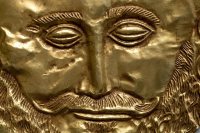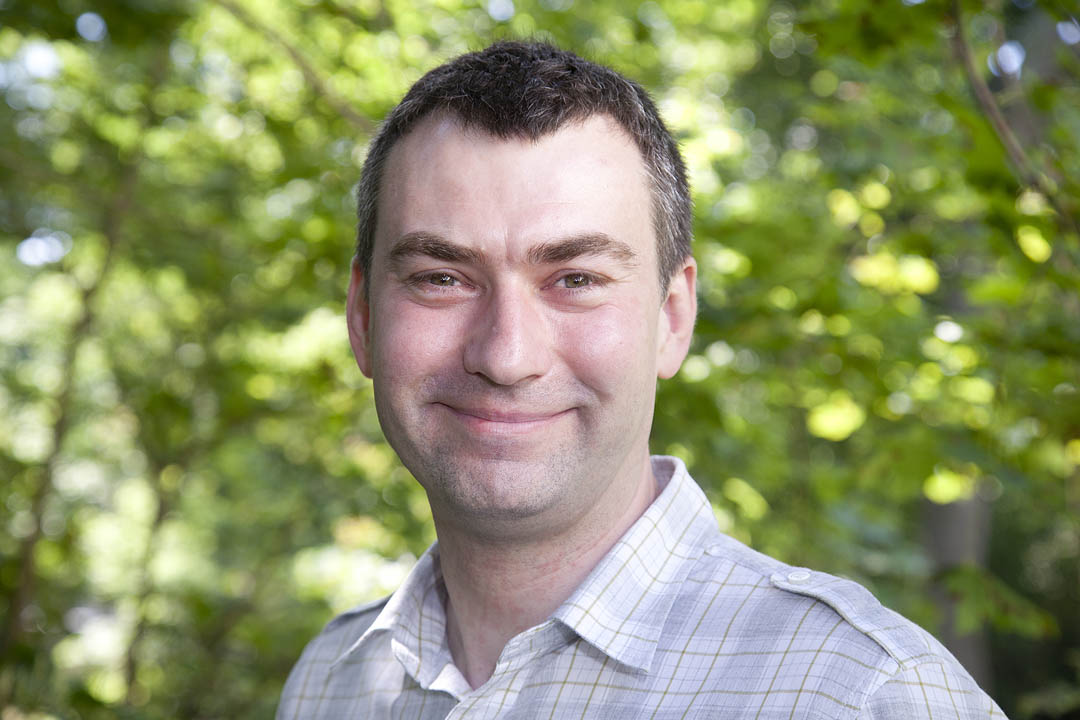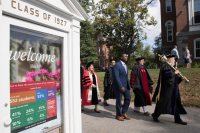
Each year when I ask faculty what they’re excited to teach, there’s a shared vibe — optimism for a new academic year and new students — in their different answers. But this year, I heard something new: urgency.
Associate Professor of History Joe Hall, for example, feels the force of current events as he launches his course on Colonial North American history.
Hall says that following “horrible misreadings” of U.S. history by President Trump and Maine Gov. Paul Lepage following the violence in Charlottesville, his course “offers a wonderful opportunity” to set the record straight.
Current events, he says, offer the chance to talk “not just about understanding why history matters, which is frankly true of any history course, but to talk about the origins of slavery, which are at the center of this country, and later the founding of the Confederacy and race relations that still make our lives so complicated.”
Ian Shin, a lecturer in history and C3 Mellon Postdoctoral Fellow, is bringing a new course to the college, Making Asian America: Citizenship, Identity, Belonging.
As noted in the Catalog, the course will suggest that the “contemporary discourse of Asian Americans as the ‘model minority’ obscures a long history of struggles for equality and glosses over the community’s rich diversity.”
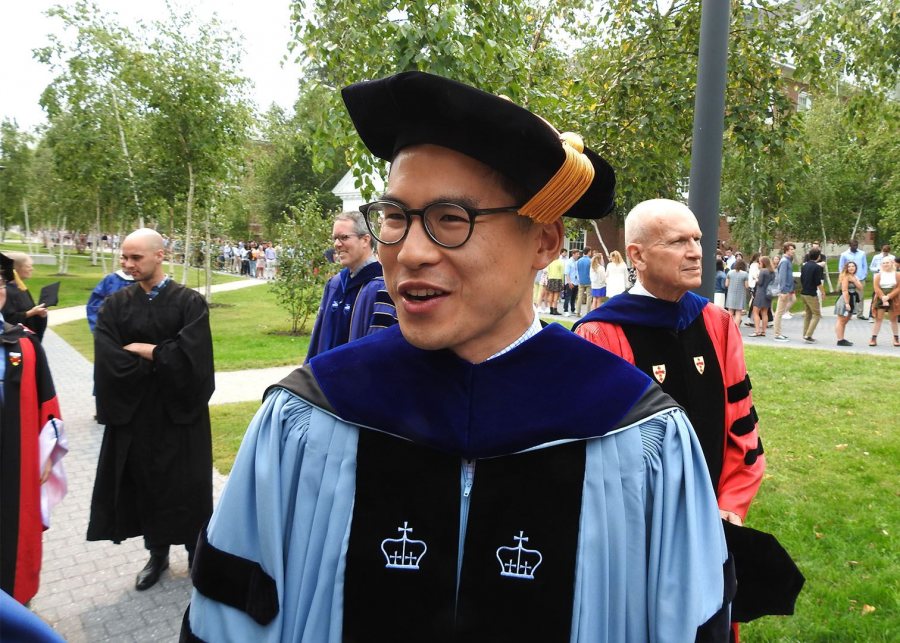
Ian Shin, a lecturer in history and C3 Mellon Postdoctoral Fellow, brings a new course to the college, “Making Asian America: Citizenship, Identity, Belonging.” (Jay Burns/Bates College)
“To my understanding, this is the first time this topic has been taught at Bates,” Shin says. “So there are a lot of stories that haven’t been told and a hunger among students of Asian descent to hear these stories.”
Moreover, he says, the course “offers a new way to think about U.S. history” by setting aside the usual narratives of American history, ones that often focus on transatlantic immigrants, to take a new perspective, looking at those who came “over the Pacific from Asia and Southeast Asia” to America.
Jane Costlow, the Clark A. Griffith Professor of Environmental Studies, says she’s been “inspired by where we are right now” to shake up her environmental humanities course, “Lives in Place.“
So while students will still read canonical writers like Henry David Thoreau, John Muir, and Edward Abbey, she’s been introducing new and more diverse voices, such as those in “Whose Parks Are These?,” essays edited by cultural geographer and writer Carolyn Finney and published in Orion magazine in 2016.
Costlow says that her love of writers like Thoreau, Muir, and Abbey includes “fighting with them sometimes”; for example, dealing with Abbey’s misogyny. But then “there are his moments of insight into the world, where his orneriness is directed against things that drive me nuts, too, such as materialism and superficiality.”
“I tell students that I hope they will discover writers who resonate with them who are, at some level very different from they are.”
Assistant Professor of Sociology Michael Rocque is keen to teach his own new course, “Correcting and Controlling Behavior.”
Rocque says his course will go beyond the criminal justice system to look at the “philosophy and social reasons of why we need to control and sometimes correct behavior.”
A criminologist, Rocque has correctional-system experience, including a stint as director of research for the Maine Department of Corrections. “I plan to use some of my connections, on both the inmate and staff sides, to show students an inside perspective on that whole world.”
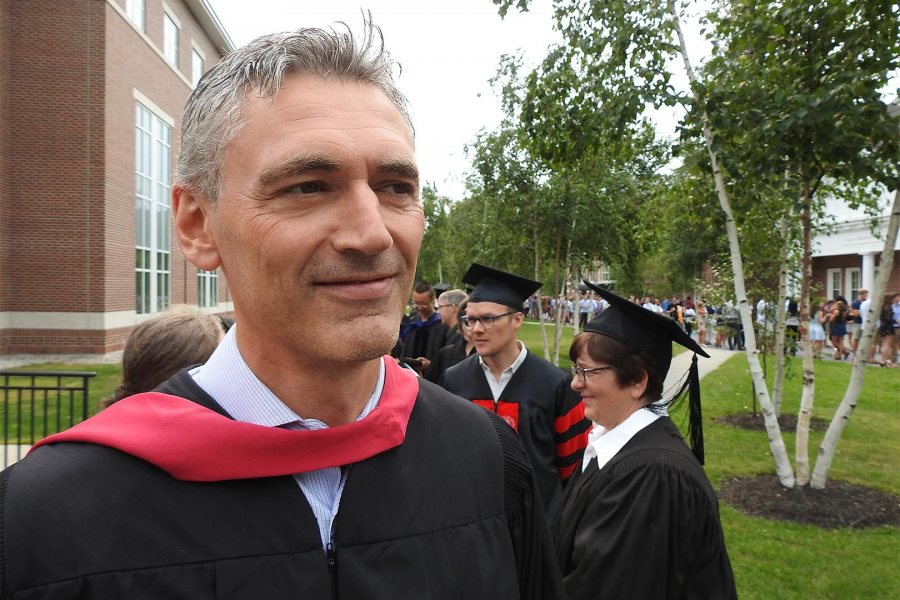
Professor of Sociology Francesco Duina is the author of the forthcoming book, Broke and Patriotic: Why Poor Americans Love Their Country. (H. Jay Burns/Bates College)
Rocque’s colleague Professor of Sociology Francesco Duina, author of the forthcoming book Broke and Patriotic: Why Poor Americans Love Their Country (Stanford University Press), says it’s a great time to teach his course on political sociology. “Very timely,” he says. “Given the current political climate, I think students will feel interested in topics such as national identity and populism.”
Rebecca Corrie, the Phillips Professor of Art and Visual Culture, is excited to teach her long-running First-Year Seminar “Fakers, Forgers, Looters, Thieves.”
The course looks beyond the familiar public face of museums to the complex world of collecting: “the art market, art law, and their sinister underside, art crime.”
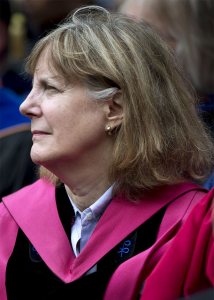
Rebecca Corrie, the Phillips Professor of Art and Visual Culture, teaches the First-Year Seminar “Fakers, Forgers, Looters, Thieves.” (Phyllis Graber Jensen/Bates College)
It’s a “topic that keeps on giving,” she says, referencing two recent news stories, one about the seizure of a Greek vase from the Metropolitan Museum of Art on the suspicion that it was looted from Italy in the 1970s and the other about an 81-year-old gangster who is tied to the infamous 1990 heist of 13 priceless pieces from the Isabella Stewart Gardner Museum.
Like all Bates geologists, Professor of Geology Mike Retelle is happiest when he’s out in the field, which is why he’s jazzed to teach his course on sedimentary environments and processes.
“It’s an intensive field laboratory course that gets students working like geologists,” he says. The class will visit what Retelle calls his “classic sites in Maine,” on the coast, rivers, and lakes. “They get a chance to get their hands dirty, literally.”
Assistant Professor of Physics Aleks Diamond-Stanic looks forward to his newly created First-Year Seminar on race, gender and identity in STEM.
“We’re doing readings on stereotype threat, on growth mindset and fixed mindset, and how to be successful in sciences, and we’ll have discussions to help students contextualize various current events.”
Marcus Bruce ’77, the Benjamin E. Mays Distinguished Professor of Religious Studies, took a broader perspective than his colleagues.
He’s teaching courses on American religious history from 1550 to 1840 and African American religious traditions, plus a senior research seminar for majors in religious studies.
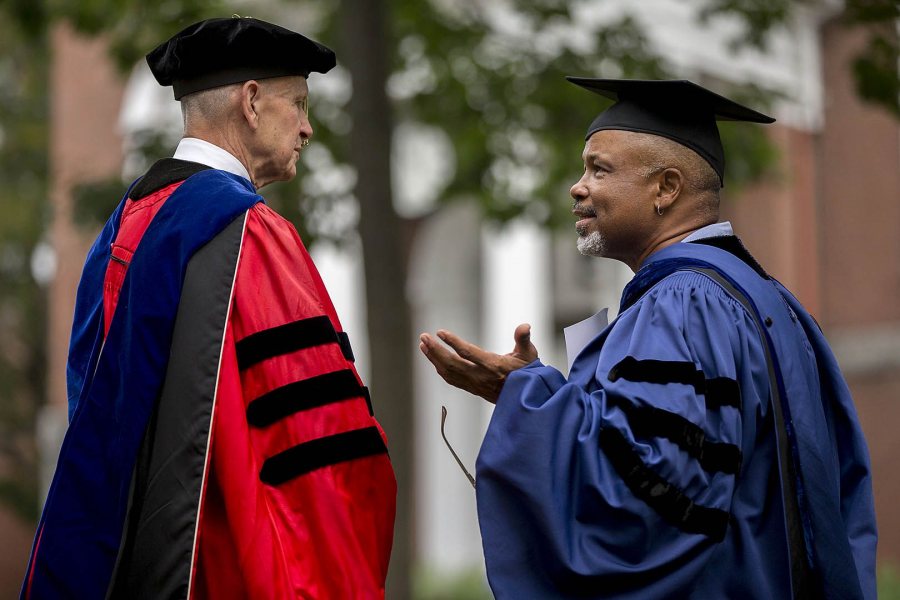
Professor Emeritus of Sociology Sawyer Sylvester talks with Professor of Religious Studies Marcus Bruce ’77 after Convocation on Sept. 5, 2017. (Phyllis Graber Jensen/Bates College)
For Bruce, excitement comes from “teaching a new group of students. It’s always interesting to see what they bring to the classroom.”
As he engages his students in dialogue, “something happens in that moment when you exchange ideas,” Bruce says. “You tell them a little bit about America’s religious history, and they bring their insights and perspectives. And that keeps it fresh.”
